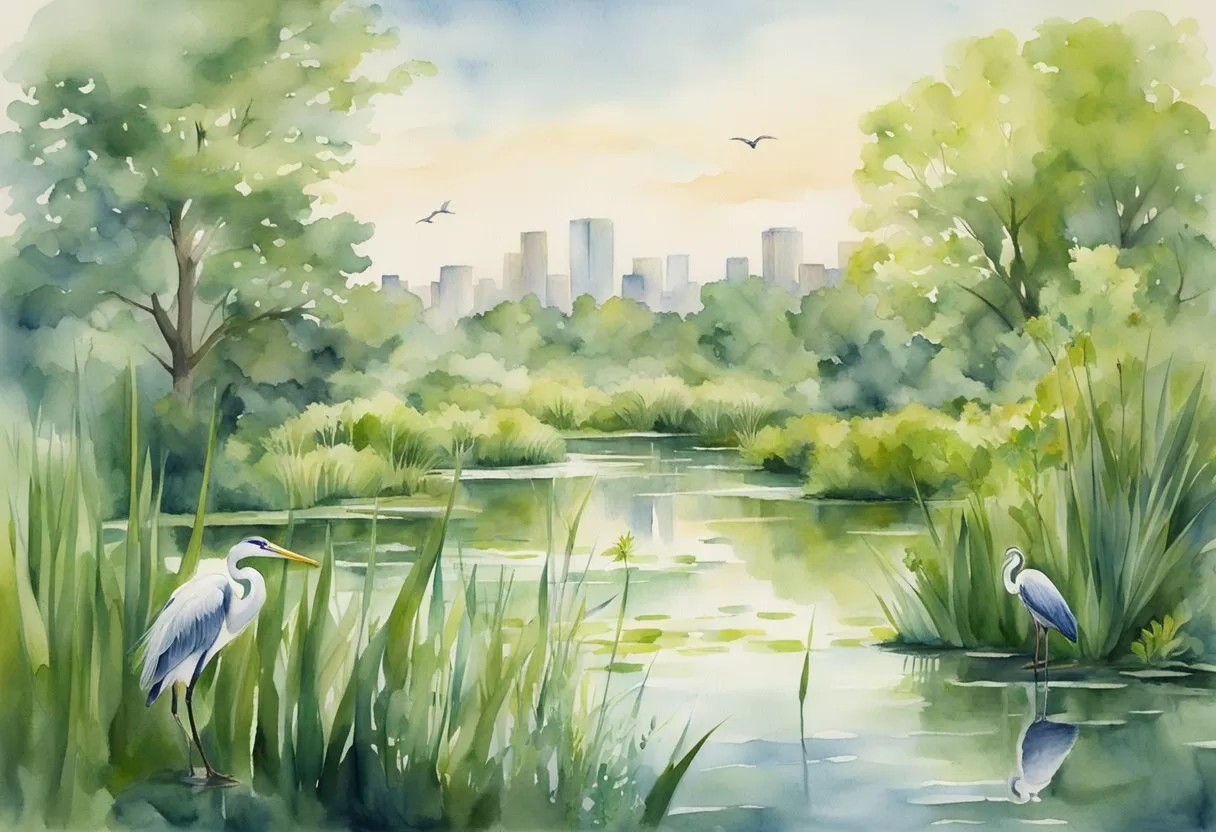Bird Watching Essentials in Baltimore
Baltimore offers a variety of opportunities for bird watchers, from prime locations to the right equipment and an understanding of seasonal patterns. Knowing where to go, what to bring, and when to look can significantly enhance the birding experience.
Optimal Locations for Birding
Several key locations in Baltimore are ideal for bird watching. Patterson Park is well-known for its diverse bird population, especially during migration seasons. The park features ponds and wooded areas, attracting species like warblers and ducks.
Hammerman Beach at Gunpowder Falls State Park provides a waterfront view that is popular with shorebirds. Seasonal events like the Baltimore Birding Weekend further showcase the area’s avian diversity, bringing enthusiasts together to explore local hotspots.
Other notable places include Druid Hill Park and Fort McHenry, both of which provide unique habitats that support different bird species throughout the year.
Seasonal Bird Behaviors
Birding in Baltimore varies throughout the seasons. Spring is particularly exciting, as migratory birds return to the area. Warblers, sparrows, and other species flock to the region, making it an ideal time for observation.
In summer, many birds breed and can be found in their nesting territories. Observers may notice increased activity among local species as they care for their young.
Autumn brings another wave of migration. Notable species to watch for include hawks and various shorebirds as they navigate their routes south. Winter, though quieter, presents opportunities to see species like cardinals and various raptors that remain in the area.
Equipment and Field Guides
Having the right equipment is crucial for successful bird watching. A quality pair of binoculars is essential. Look for models with a magnification of 8×42, as they provide a good balance between field of view and brightness.
Field guides specific to Maryland’s birds are recommended for identification purposes. Birds of Maryland and apps like Merlin Bird ID can be invaluable resources.
Other useful items include a notebook for recording sightings, a camera for capturing images, and appropriate footwear for walking trails. Having these tools ensures a comprehensive birding experience, allowing enthusiasts to engage fully with the environment.
Diverse Habitats and Birdlife
Baltimore’s birdwatching scene thrives due to its diverse habitats, which support a variety of native and migratory species. The richness of the region’s ecosystems offers bird enthusiasts numerous opportunities to observe avian life throughout the year.
Spotting Native and Migratory Species
Maryland, particularly around Baltimore, serves as a vital stopover for many migratory birds. During the spring and fall, species like the Baltimore Oriole and the Ruby-throated Hummingbird can be seen as they journey between their breeding and wintering grounds.
Key Native Species:
- Baltimore Oriole: Known for its striking orange and black plumage.
- Bald Eagle: Frequently spotted near bodies of water.
The various habitats in the area include coastal regions, forests, and wetlands, each attracting unique bird populations. Birders can explore places like the Blackwater National Wildlife Refuge to witness this seasonal spectacle firsthand.
Importance of Wetlands
Wetlands play a critical role in supporting birdlife by providing essential breeding and feeding grounds. They attract various species, including shorebirds and waterfowl, who rely on these areas for sustenance during migration.
Wetland Species of Interest:
- Great Blue Heron: A common sight in marshes and shallow waters.
- Snowy Egret: Recognizable by its striking white feathers.
In Baltimore, locations such as Jug Bay Wetlands Sanctuary offer excellent viewing opportunities. These areas not only support birdlife but also maintain biodiversity and improve water quality, making them crucial for a healthy ecosystem.
Share this content:

Post Comment
You must be logged in to post a comment.